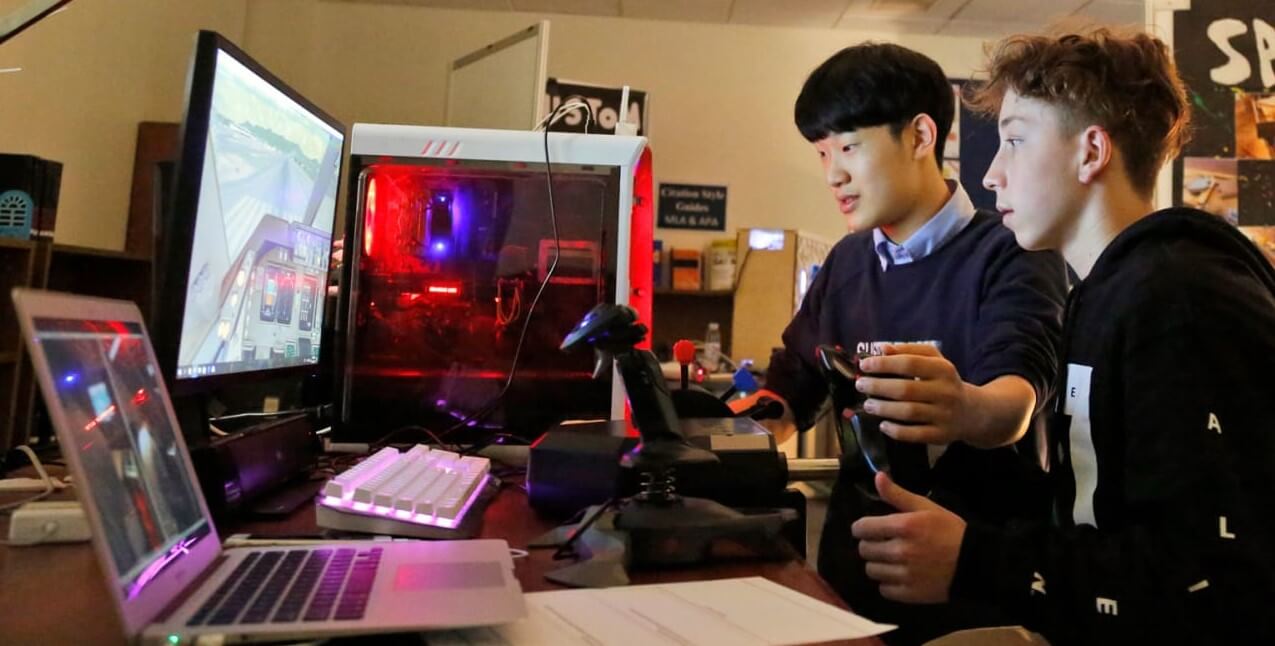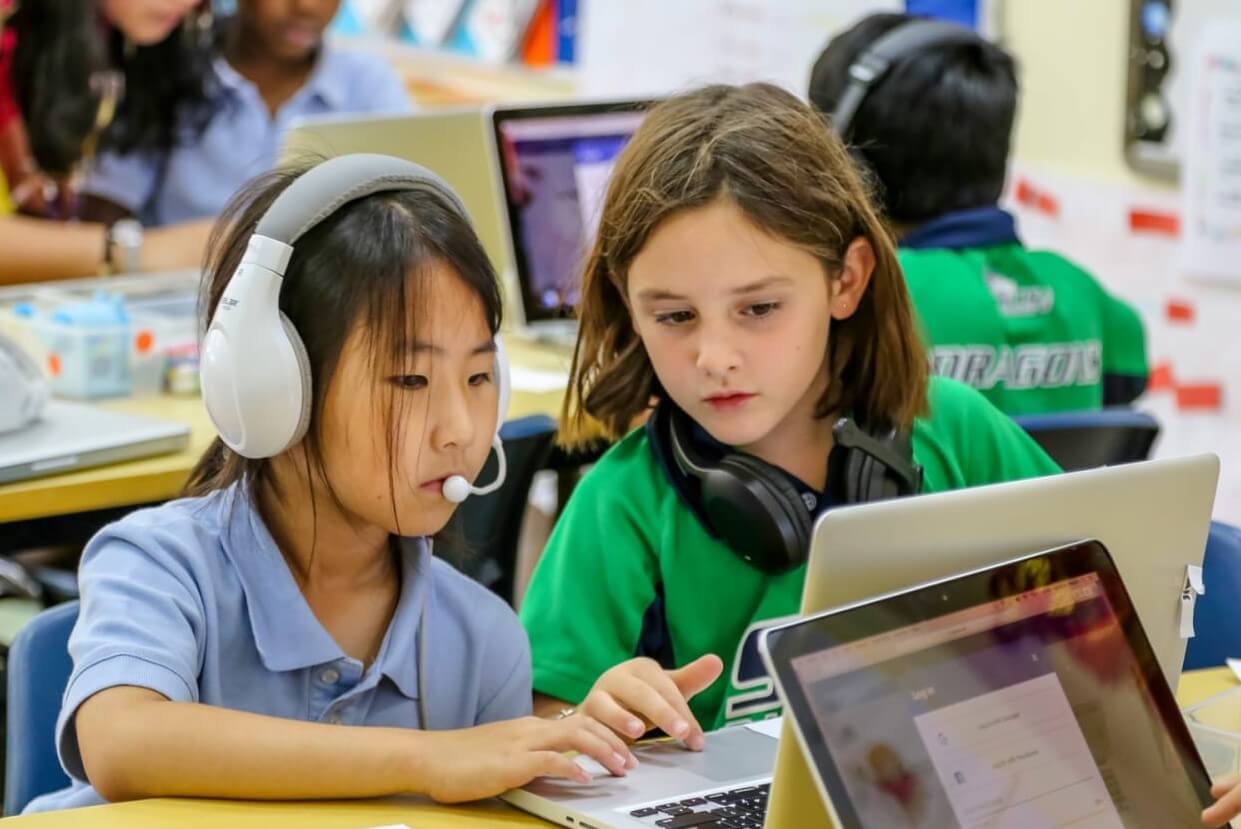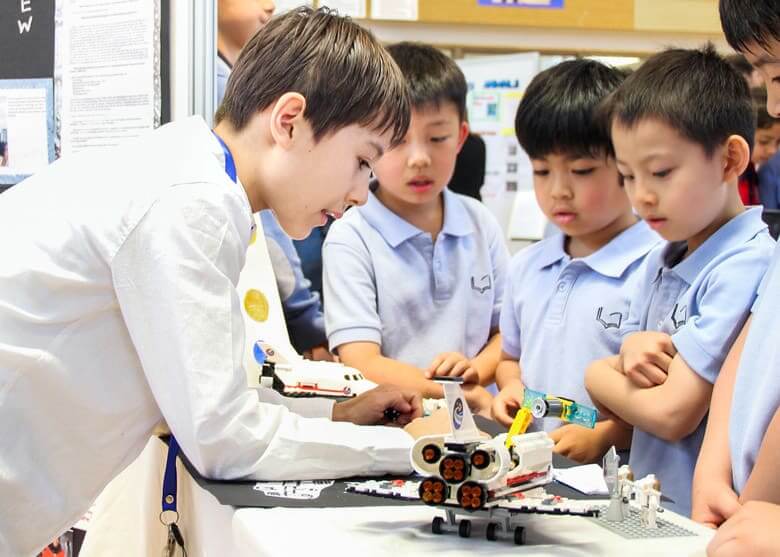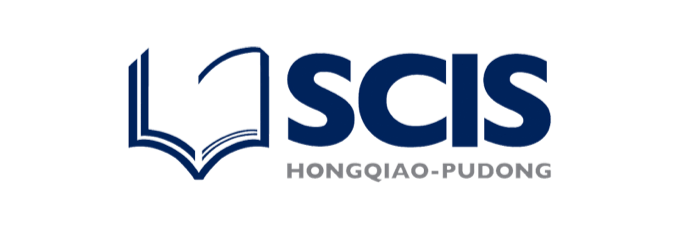The future of work will prize critical thinkers and creative mavens. The World Economic Forum (WEF) notes that critical thinking and problem-solving top the list of skills that employers believe will grow in prominence in the next five years, consistent with WEF’s findings in 2016. Similarly, the future needs creative thinkers who can anticipate changes, think quickly on their feet and find solutions to challenges organisations face.
In these rapidly evolving times, preparing today’s students for jobs that don’t yet exist is essential — and that’s where Shanghai Community International School (SCIS) comes in. SCIS is an International Baccalaureate (IB) Continuum World School offering a number of programmes for students of all ages; the Primary Years Programme in their Early Childhood and Lower School divisions, and the Middle Years and Diploma Programmes in their Upper School. It has three campuses across both sides of the Huangpu river in Shanghai, an international and influential metropolis known as China’s commercial capital.
At SCIS, students are encouraged to become active and lifelong learners. The IB programme makes this possible. Research by the University of Oxford suggests that students who take the International Baccalaureate (IB) exhibit stronger critical thinking skills than their non-IB peers, making it a strong option for parents who want to instil this in their children.
SCIS Class of 2013 alumnus Adam He agrees. He describes the school’s IB programme as “both robust and vibrant.” “The small classes and student-centred approach are extremely beneficial to the entire learning experience. The emphasis on writing and research provided an excellent background for the intellectual independence expected in undergraduate studies,” shares He, who was awarded the Jaeger Mathematics Prize in his first year at Pomona College and was also named Pomona College Scholar, which is awarded to the top quarter students in every class each semester.
Another Class of 2013 alumnus, Julia Moon, concurs. “Having a wide variety of experience at SCIS truly helped me develop critical thinking skills and creativity that are needed to succeed in my design major at KAIST,” she says. KAIST refers to the Korea Advanced Institute of Science and Technology, the nation’s first — and most prolific — public, research-oriented science and engineering institution.
This focus on critical thinking produces results. SCIS’s highest IB score is 45. All students progress to university. As many as 15% of their students are admitted to the top 10 universities worldwide, including the University of Cambridge, Johns Hopkins University, Imperial College London and University of California, Los Angeles (UCLA).
SCIS sparks creativity too. “SCIS has provided numerous after-school activities to teach students how to be cooperative and creative, and it has created a comfortable environment for students to reach a high-level of academic achievement. I participated in the volleyball team and learned to cooperate with other teammates; moreover, I contributed to the school’s community by translating the school’s ‘Dragon News’ publication into Korean for Korean parents,” shares Epic Jung from the Class of 2013.
Teaching innovation and problem solving for successful careers
There is another feature that moulds SCIS students into future leaders with the smarts to outpace galloping technological progress: diversity. Graduate Elizabeth DePietro, from the Class of 2010, attributed her success at the University of Southern California and at her first full-time job to SCIS’s diverse community and challenging classes. “I learned Mandarin, computer programming, and developed writing skills — all within small classes with friends from all over the world. When I look back on my high school days, I really miss attending SCIS!” shares DePietro, who currently works as a Global Mobility Coordinator at The Walt Disney Company.
These are outcomes that impress parents. “I have been really impressed to see how my children have developed into socially strong and open-minded individuals over the past two years in SCIS,” says parent Harri Eronen from Finland. “This aspect of personal strength and skills cannot be overemphasised, especially with naturally introverted Finns. This was the main reason why I chose to enrol them into SCIS when moving to Shanghai.”
Speaking about how the school has benefited their children, Annika and Henrik Larsson from Sweden shares, “This school has broadened their minds academically but more importantly, it has opened
their mind to other cultures and other ways of doing things. It has developed their personalities to respect that others are different and to enjoy working with them. The school has made them learn something about themselves as well as made them self-aware, respectful and open minded. Thank you so much for these six years!” If you’re interested to find out more about SCIS, click here.
Follow the Shanghai Community International School on Facebook, Instagram, YouTube, LinkedIn and WeChat















